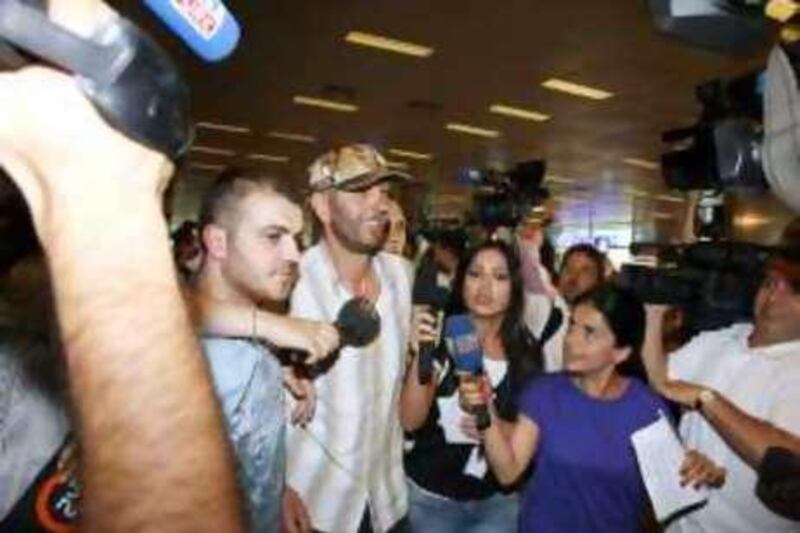ISTANBUL // While stoking international outrage over the deadly Israeli commando attack on aid ships carrying supplies for the Gaza Strip, the Turkish government, one of Israel's fiercest critics, is also working hard to channel the anger at home and abroad into concrete steps to end the Gaza blockade.
"Nobody should test Turkey's patience," Recep Tayyip Erdogan, the prime minister, who cut short a visit to South America and returned to Turkey because of the crisis, said in a speech in Ankara yesterday. "Turkey's friendship is as valuable as its emnity is fierce." Speaking to rapturous applause from deputies of his ruling party, he said those Israeli officials responsible for the attack should be punished and that Turkey would support the Palestinian people "even if all others are silent, close their eyes or turn their backs". He said aid ships for Gaza would reach their destination "one day".
Mr Erdogan was careful to focus his criticism on the Israeli government, not on Israel as a whole entity or on Jews in Israel or in Turkey. He did not announce any additional measures against Israel beyond the ones already taken, including the temporary recall of the Turkish ambassador from Tel Aviv, thereby leaving the door open for an eventual improvement in ties. "It was like a declaration of war," Ferai Tunc, a foreign policy columnist, told the NTV news channel after the speech. "But it was a declaration of war against the Israeli government, not against Israel as such."
In his speech, Mr Erdogan called for an end to the Israeli blockade of the Gaza Strip and said he had talked to several world leaders about the situation. He also said he was scheduled to hold telephone conversations with Barack Obama, the US president, and with David Cameron, the new British prime minister, later in the day. In the eyes of the Turkish public, Israel has turned into "a rogue state", Cengiz Candar, a prominent columnist, wrote in yesterday's Referans newspaper. "Hitler's children", read the main headline in the pro-government Yeni Safak daily. Many newspapers carried pictures of one of the injured activists whose hands had been tied by Israeli soldiers even though he lay on a stretcher with a bloodied face.
Turkish authorities sent three military and civilian planes to Israel yesterday to bring home wounded activists. There was still no official death toll, but Nilufer Kaan Cetin, one of the Turkish activists returning from Israel, told reporters that a total of 19 people had been killed and that 14 activists were still unaccounted for. More than half of the pro-Palestinian activists on board the convoy of ships heading to Gaza were Turkish citizens, and most of the dead were also reported to be Turks. An Islamic aid organisation based in Istanbul was one of the main organisers of the convoy.
"The Gaza blockade is not a bilateral problem between Turkey and Israel, but a big international human tragedy," Abdullah Gul, Turkey's president, said in a statement. "We expect this inhuman blockade to be lifted immediately." Turkey can use the global criticism directed against Israel and its own position as a rising power in the region to build up pressure to make sure the blockade is lifted, Candar wrote. "If Turkey is able to direct the international crisis and the outrage against Israel in the international community effectively, it can play a role in having the Gaza blockade lifted."
Turkish officials contacted the Organisation of the Islamic Conference, the Arab League as well as Nato and the EU to increase pressure on Israel. A high-ranking Turkish diplomat said that the crisis had at least brought the Gaza problem back onto forefront of the international agenda. "The world had almost forgotten the conditions in Gaza," the diplomat said on condition of anonymity. "Whether this will contribute to ending the blockade will be determined in the coming weeks."
tseibert@thenational.ae





